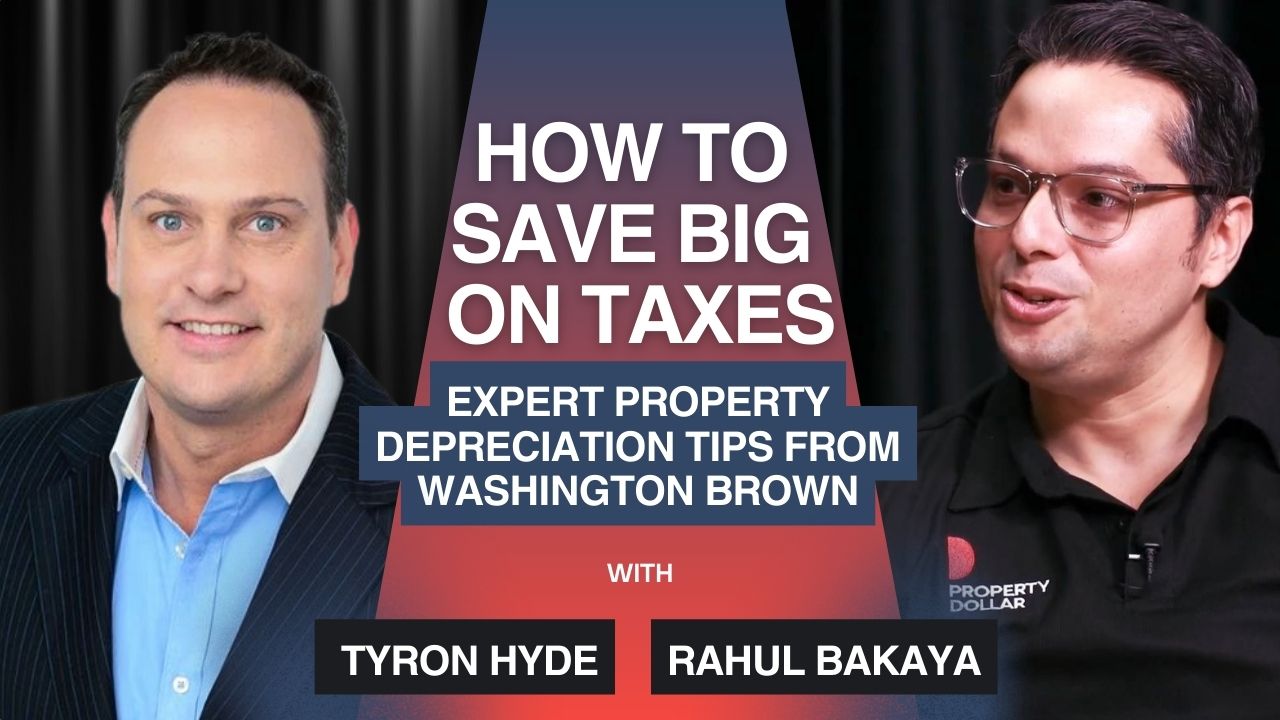Understanding Property Depreciation: A Guide for Investors
- February 4, 2025

Property depreciation is a crucial yet often misunderstood aspect of real estate investment. In this blog, we explore key insights from Tyron Hyde, CEO of Washington Brown, a leading depreciation schedule provider, as discussed in the eighth episode of Property Dollar. This guide will help property investors understand depreciation, its benefits, and how to maximize tax deductions.
What is Property Depreciation?
Depreciation is a tax deduction that allows investors to claim the wear and tear of their investment property against their taxable income. Similar to how businesses claim depreciation on vehicles and equipment, property investors can claim deductions for the structural and fixture-related expenses of their property. These deductions reduce taxable income, leading to significant tax savings.
Who Can Claim Depreciation?
Only investment properties qualify for depreciation claims. If you live in the property as an owner-occupier, you cannot claim depreciation. However, as an investor, you can claim deductions under two main categories:
- Capital Works (Division 43): Covers structural elements such as bricks, concrete, walls, roofs, and plumbing. Typically, these are depreciated over 40 years.
- Plant and Equipment (Division 40): Includes fixtures and fittings like ovens, carpets, dishwashers, and blinds. These items have different depreciation rates based on their lifespan.
How Depreciation Helps Investors
Depreciation reduces taxable income, resulting in lower tax liabilities. For example, if an investor earns $180,000 per year and claims $10,000 in depreciation, their taxable income is reduced, potentially lowering their tax bracket and overall tax payable.
Changes in Depreciation Laws
In 2017, the Australian Government introduced changes affecting second-hand properties. Investors can no longer claim depreciation on previously used plant and equipment assets in existing residential properties. However, deductions for structural elements remain unchanged. These changes do not affect commercial, industrial, or retail properties.
To maximize benefits, investors should ensure they purchase properties directly from developers where GST is paid. If an off-the-plan property is resold before settlement, it is considered second-hand in the eyes of the law, limiting depreciation benefits.
Depreciation on New Properties
For newly built properties, investors can claim depreciation immediately upon settlement. Reports are backdated to the settlement date, regardless of when the depreciation schedule is prepared. Working with professionals like Washington Brown ensures accurate assessments and maximized deductions.
Maximizing Depreciation Deductions
- Scrapping: If an investor renovates an older property, they can claim an immediate deduction for the remaining value of the removed items.
- Immediate Deductions: Items costing under $300 can be written off immediately rather than depreciated over time.
- Avoid Overcapitalization: Investors should be mindful of renovation costs, as excessive spending may not equate to increased property value.
Investment Strategies from an Industry Expert
Tyron Hyde shares a key investment strategy inspired by billionaire property developer Harry Triguboff of Meriton Apartments: “When times are bad, buy land. By the time development approval is granted, times are good again.” This approach highlights the importance of timing and market cycles in property investment.
Property Dollar & Washington Brown Partnership
Property Dollar has integrated a depreciation calculator into its app, allowing investors to estimate depreciation claims instantly. Property Dollar users also receive discounted depreciation reports from Washington Brown, ensuring maximum tax benefits with minimal effort.
Final Thoughts
Understanding property depreciation is vital for smart investing. By leveraging depreciation deductions, investors can enhance cash flow, reduce taxable income, and maximize returns. For expert guidance, consulting with a quantity surveyor like Washington Brown is highly recommended.
For more insights and tools, download the Property Dollar app and get your depreciation report today!
Disclaimer: The information provided in this blog is general in nature and not intended to be personalized financial advice. Please consult a financial advisor before making any decisions regarding your finances.




